Replication stress is a potent driver of functional decline in ageing haematopoietic stem cells
- PMID: 25079315
- PMCID: PMC4456040
- DOI: 10.1038/nature13619
Replication stress is a potent driver of functional decline in ageing haematopoietic stem cells
Abstract
Haematopoietic stem cells (HSCs) self-renew for life, thereby making them one of the few blood cells that truly age. Paradoxically, although HSCs numerically expand with age, their functional activity declines over time, resulting in degraded blood production and impaired engraftment following transplantation. While many drivers of HSC ageing have been proposed, the reason why HSC function degrades with age remains unknown. Here we show that cycling old HSCs in mice have heightened levels of replication stress associated with cell cycle defects and chromosome gaps or breaks, which are due to decreased expression of mini-chromosome maintenance (MCM) helicase components and altered dynamics of DNA replication forks. Nonetheless, old HSCs survive replication unless confronted with a strong replication challenge, such as transplantation. Moreover, once old HSCs re-establish quiescence, residual replication stress on ribosomal DNA (rDNA) genes leads to the formation of nucleolar-associated γH2AX signals, which persist owing to ineffective H2AX dephosphorylation by mislocalized PP4c phosphatase rather than ongoing DNA damage. Persistent nucleolar γH2AX also acts as a histone modification marking the transcriptional silencing of rDNA genes and decreased ribosome biogenesis in quiescent old HSCs. Our results identify replication stress as a potent driver of functional decline in old HSCs, and highlight the MCM DNA helicase as a potential molecular target for rejuvenation therapies.
Figures
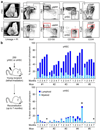
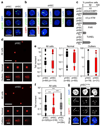
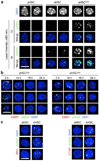

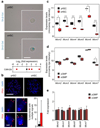
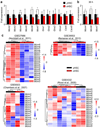

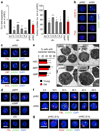
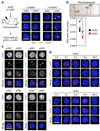



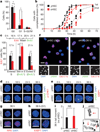
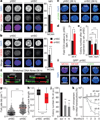
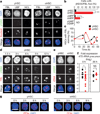
Comment in
-
Ageing: Old blood stem cells feel the stress.Nature. 2014 Aug 14;512(7513):140-1. doi: 10.1038/nature13652. Epub 2014 Jul 30. Nature. 2014. PMID: 25079313 No abstract available.
-
Stem cells: Replication stress makes HSCs feel old.Nat Rev Mol Cell Biol. 2014 Sep;15(9):560-1. doi: 10.1038/nrm3859. Epub 2014 Aug 6. Nat Rev Mol Cell Biol. 2014. PMID: 25096050 No abstract available.
References
Publication types
MeSH terms
Substances
Associated data
- Actions
Grants and funding
LinkOut - more resources
Full Text Sources
Other Literature Sources
Medical
Molecular Biology Databases

